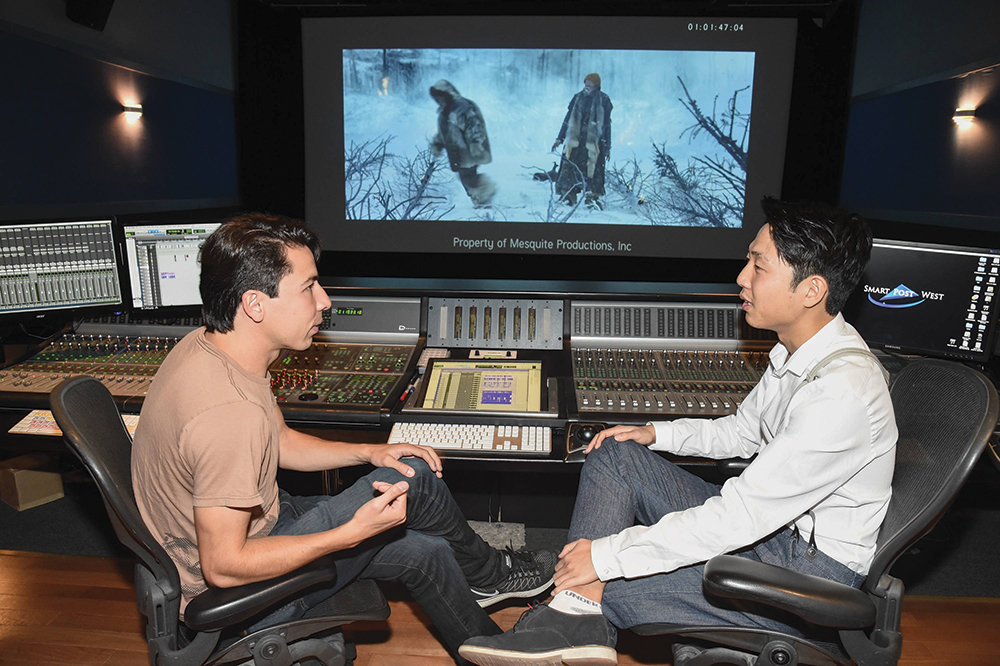How the Television Academy Foundation Is Evolving to Preserve Legacies
By Debra Birnbaum
LOS ANGELES (Variety.com) – It may be turning 60, but the Television Academy Foundation is hardly showing its age.
The charitable arm of the Television Academy is committed to finding and nurturing burgeoning talent, giving them the resources to both learn from the past and shape the future of television.
Charged with executing that mission is Madeline Di Nonno, chair of the board of directors, and CEO of the Geena Davis Institute on Gender in Media. As fast as the industry is moving, she says, it’s imperative that the foundation — and its efforts — keep pace.
“We have to evolve in order to stay relevant,” she says.
The foundation has been re-evaluating all of its programs to make sure the needs of those it aims to serve are being met. Among them are the internship program, which offers job opportunities for 50 students; the College Television Awards, which recognize outstanding work with more than 60 trophies; and the interviews archive, which preserves the history of TV through extensive conversations with industry icons.
“We have re-energized and modernized the foundation’s online oral history of television while advancing inclusivity within the industry by providing programs and opportunities for talented youth from diverse backgrounds,” says Hayma Washington, the Television Academy’s chairman and CEO. “We are very excited about the Foundation’s direction and the revitalization of its programs.”
Wanting to know more details about the fate of the foundation’s interns, Di Nonno and her team commissioned a research study. Among the data gleaned so far, they’ve learned that 90% are still working in the industry, with 16% at a C-suite level or higher and almost 30% were hired by the very host company that they worked for. Several alums have gone on to win Emmys, such as Rachel Axler, who has won four trophies, including for writing “Veep.”
All this proved to Di Nonno that the program is still relevant and gives students a foothold into the industry. But now she hopes to expand it — looking at year-round positions, or adding opportunities in cities beyond Los Angeles.
Inclusivity is high among Di Nonno’s priorities: Nearly 60% of the current class of 2018 (for which there were 2,000 applicants) are diverse, and 74% are female.
“We have a very keen eye on making sure our interns are intersectional,” says Di Nonno. “The storytellers behind the camera drive the stories that are being told onscreen, so it’s really important that as we look at who are the leaders [are], we need to identify and engage and harness now into the industry.”
Diversity is also key when it comes to the host companies that are included, beyond broadcast to emerging digital platforms.
The College Television Awards, which will turn 40 in 2020, is also evolving; among the awards is now one focused on disability, thanks to foundation supporter Loreen Arbus.
And then there’s the matter of educating the teachers themselves. Through the faculty seminar program, professors are instructed on the business of TV. “By bringing these faculty to us, we know that we’re connecting them to the best and the brightest, the most cutting-edge things that are happening with regards to all aspects of television,” Di Nonno says.
| Television Academy Foundation interns work in all areas of the biz. Invision for the Television Academy |
Di Nonno also praises the “robust” interview site, which has recently been redeveloped to be fully searchable. While they’ve had a bank of interviews for years — 900 overall, going back to the 1940s — it’s now searchable by even the most obscure, granular of keywords. And best of all, it’s free, to users both in and outside of the industry.
Of course, the foundation is not without its challenges, and looking ahead to the next 60 years, Di Nonno sees a need for more funding to keep all of these programs active, like the interview database.
“We need to build a preservation technology plan so that we don’t lose this treasure trove. That alone is millions of dollars to make sure that it’s protected,” she notes.
Events are also part of her purview, and based on feedback from the students that their priority is finding jobs, the foundation hosts five networking events throughout the year to connect interns with the Academy’s base of 25,000 members.
“We’re looking at how do we not only acknowledge excellence, but how do we also use it to help the kids network because they want to know where the jobs are,” says Di Nonno.
The first Women in Television summit was held in May, and they also recently launched a public programming series called “Power of TV,” which is open to the community as well. Norman Lear kicked it off by speaking about both the original and revival of “One Day at a Time,” and a recent event delved into Latinx inclusion onscreen.
“I’m most proud that we can say without a doubt that our programs have impact, our programs have helped shape and launch careers, and that we have the metrics to prove it,” says Di Nonno. “Our educational programs are a direct pathway into the industry and we can prove that the people have gone through the program are very, very successful. To have 90% of our interns still working in the industry? That’s a lot. We think that that’s really, really powerful.”


